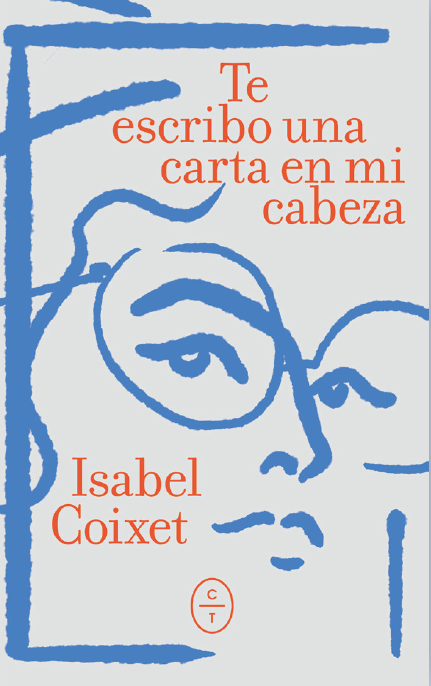"The only thing we can be sure of Isabel Coixet's filmography or the texts included in Te escribo una carta en mi cabeza (I am writing a letter in my head) is that there is mystery and we must walk towards it. But not to understand it, only to embrace it." -Laura Ferrero
"In her texts on culture, society or life, Isabel Coixet opens herself to the world always as that wonderful friend who decodes, points out, gets passionate, disgusted, shouts with joy or shuts down with disgust, giving us master classes of humanity. Her humor is sharp, but her gaze is merciful; even when she kicks up a fuss about something she is saving someone. Anyone who has ever been moved by her films-and this should fit the whole of humanity - will enjoy her immensely. -Alberto Moreno
"Wise, sharp, emotional, witty... Isabel Coixet's texts are a gift." -Cristina Fernández Cubas
"Objects. Places. Conversations. Flavors. Memories. Tastes. Names. Women. Miracles. Better worlds. Outlines. Lightness. Nostalgia. Ghosts. Characters. And a whole sky. And all the mists we can embrace. And a wish fulfilled: 'Isabel, put this in writing...'"-Bob Pop
«At the age of three, Isabel Coixet learned a lesson: the screen and life are two worlds that adjoin even if they do not communicate.
«From that early learning come the texts included in I’m writing you a letter in my head. Because we could say that the girl grows up, but something -or a lot- remains of her, always alert, sitting in that armchair she will never leave and from there, all ears, eyes wide open, she crosses reality hand in hand with the letters she writes.
Falling in love with the world has to do with a renewed capacity to feel amazement, and it is this state of permanent curiosity that threads these texts in which Coixet shares her search for singularity -sometimes called beauty- and finds it in the most seemingly ordinary things: a good meal, the pending coffees, her love for glasses, Greta Garbo’s pink dress, or the rain, which is no longer like it used to be. These texts are, then, something like counter-indications, an invitation to change our minds, distancing ourselves from the categorical and the mirage of certainties.» -Laura Ferrero
